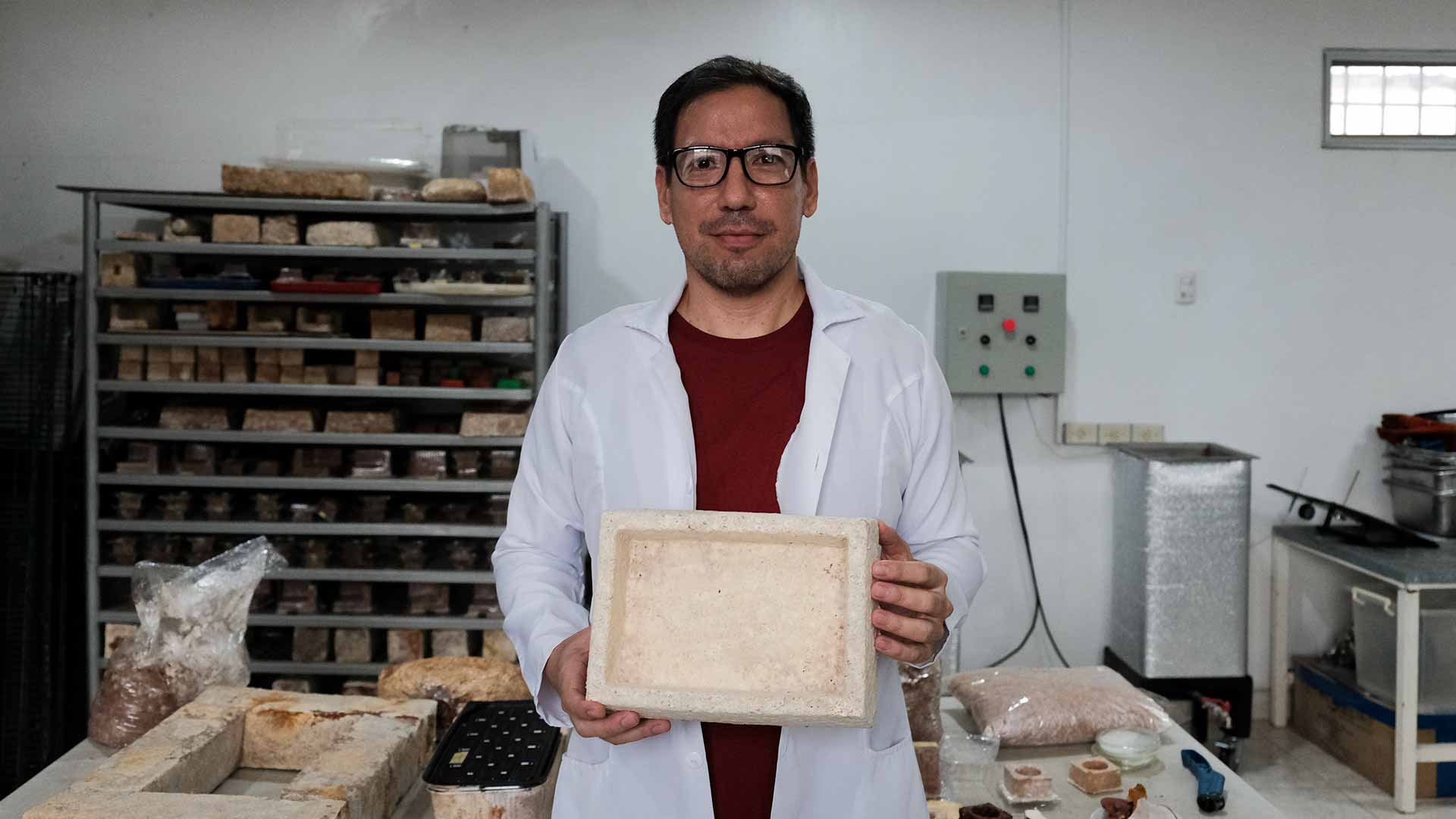
Ecuador: mushrooms as an ecological alternative to polystyrene
In Ecuador, the Plastic Odyssey team met César, an entrepreneur with a passion for mushrooms. Thanks to reishi, he’s not only developed a range of health and wellness products, but more importantly, he’s found a way to reuse the mushroom’s potting soil to make eco-friendly blocks and containers. Thanks to this unique mushroom, César can now imagine a future without polystyrene.
The BioFabrik family business
César’s father used to run a plastics production business. After his death, César, his mother and his sister decided to embark on a brand new, more environmentally-friendly project: growing mushrooms to make natural, sustainable products.
“It’s a bit of a pendulum swing. After producing plastic for many years, we’re taking over to take care of our planet!” César’s mother, who also runs the family business, tells us.
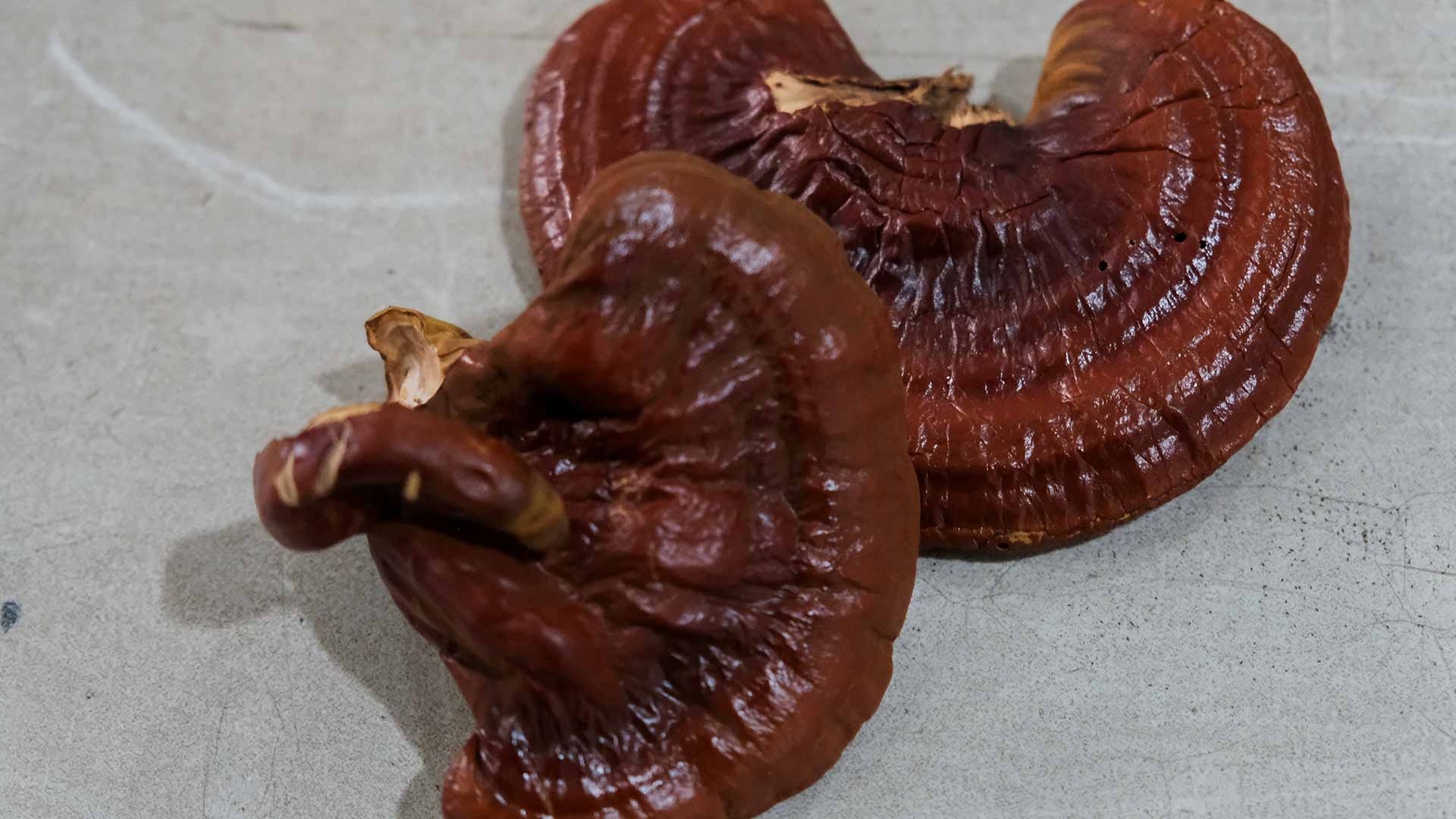
Their flagship products at the moment are natural reishi-based products such as soaps, essential oils and other body products. In order to develop this fungus, it must be cultivated under very specific conditions of humidity, temperature and light. César set up a room to grow his mushrooms in this very special environment.
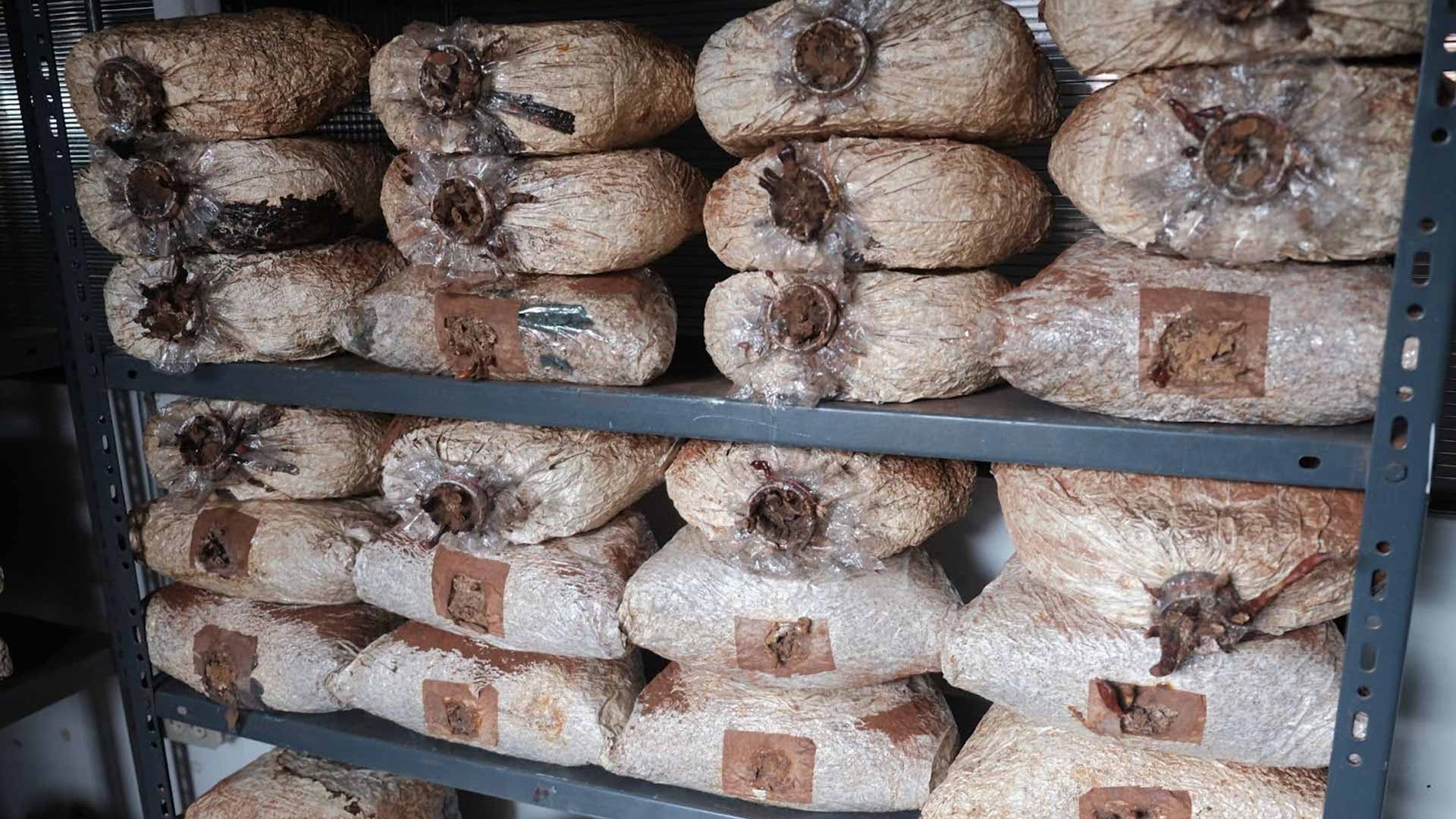
Once the mushrooms have reached maturity, they are harvested for the production of wellness products. However, what to do with the substrate, the mushroom compost, once the harvest is complete? Keen to keep the waste generated by his business to a minimum, César came up with a way of reusing it.

From mycelium to finished products
The substrate bags contain reishi mycelium, the root and vegetative part of the fungus, as well as industrial wood residues. This mixture has the particularity of solidifying as it dries and of resisting fire. César came up with the idea of shaping this material into useful products. In brick form, it makes an excellent insulator for construction, and in corner form, it offers an environmentally-friendly alternative to polystyrene packaging.
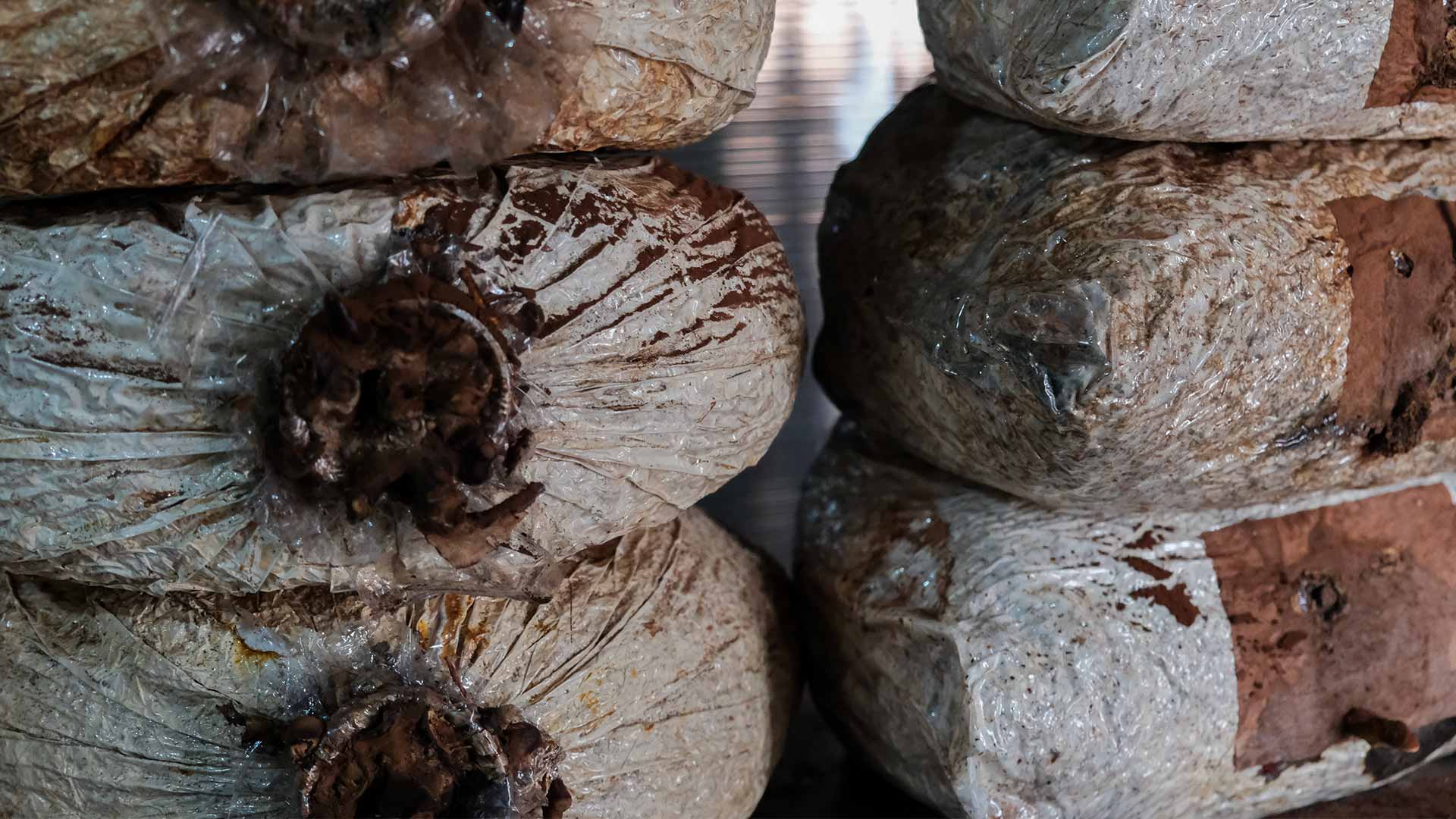
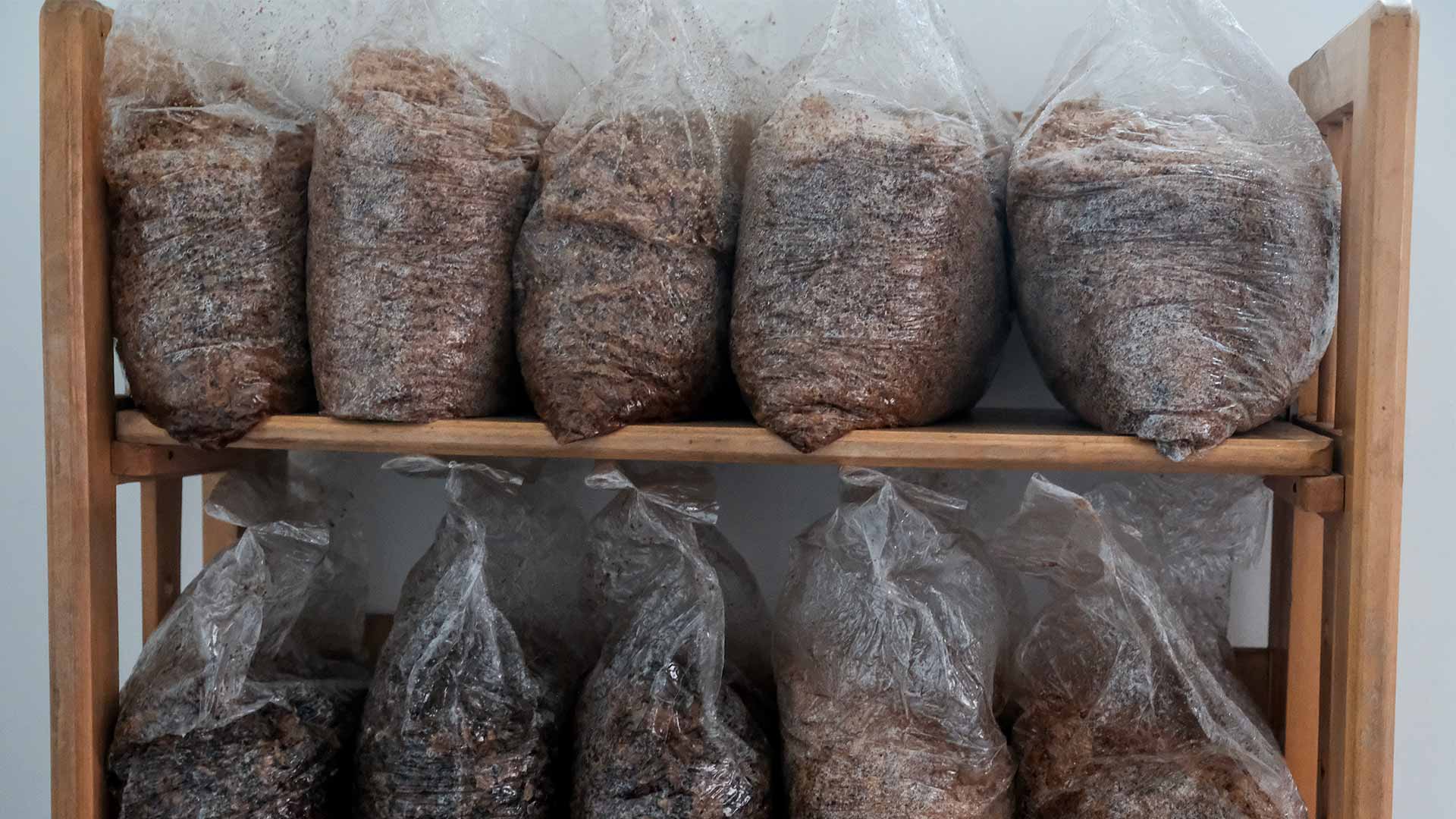
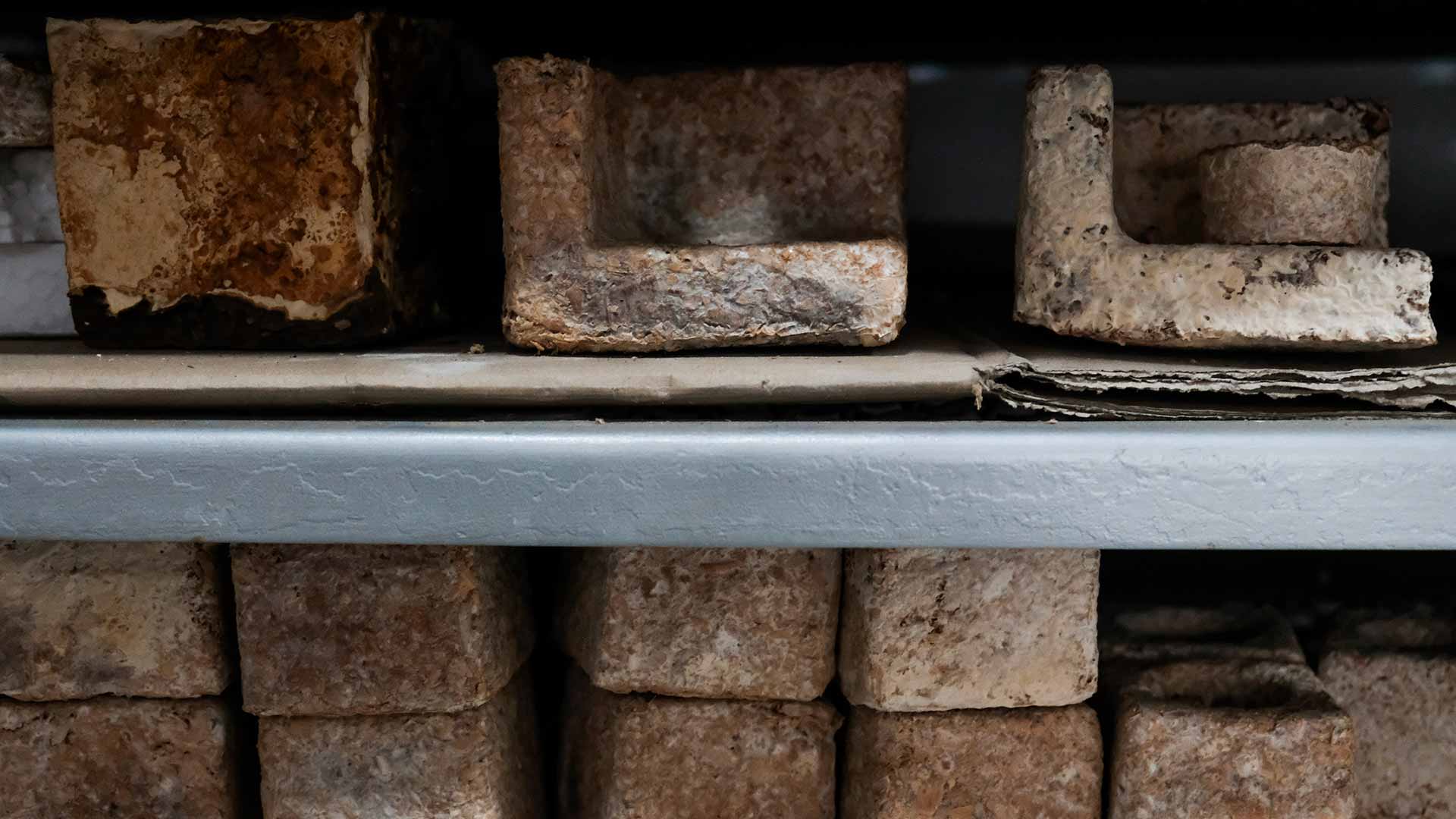
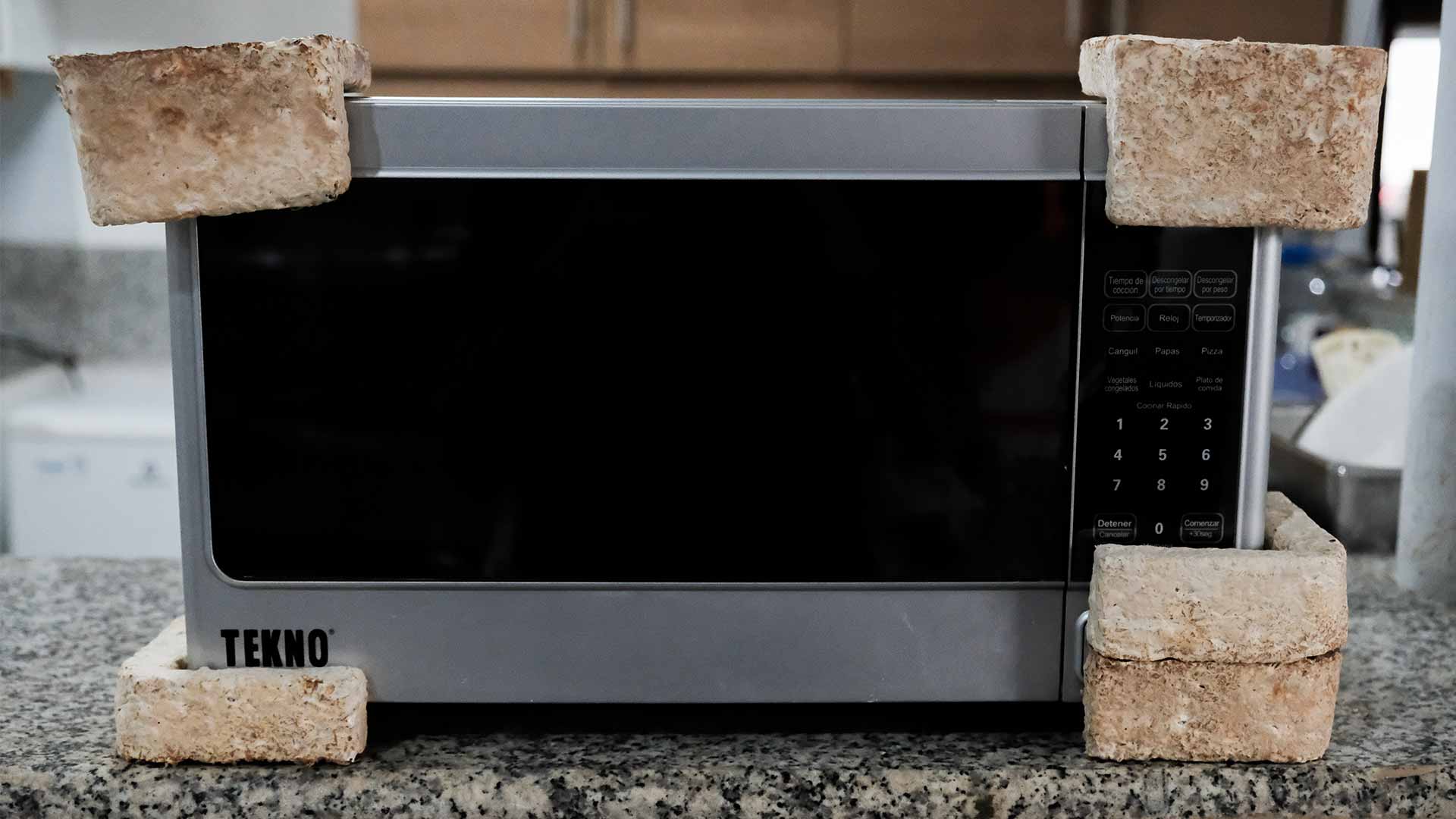
Today, production of this promising material has gone beyond the prototyping stage and is already proving its worth. César plans to develop this business in its own right, alongside the marketing of reishi-based wellness products.
For the time being, César uses these pieces only for his own products, but he hopes to expand his concept to sell to major industries. BioFabrik’s mushroom bricks and packaging are living proof that there is an ecological and sustainable alternative to plastic.
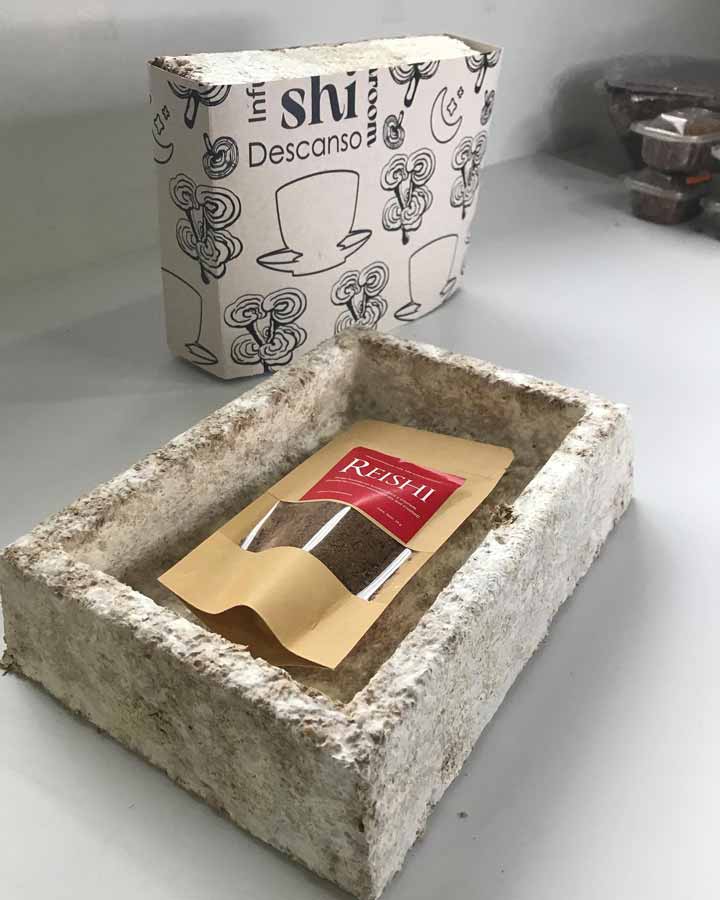
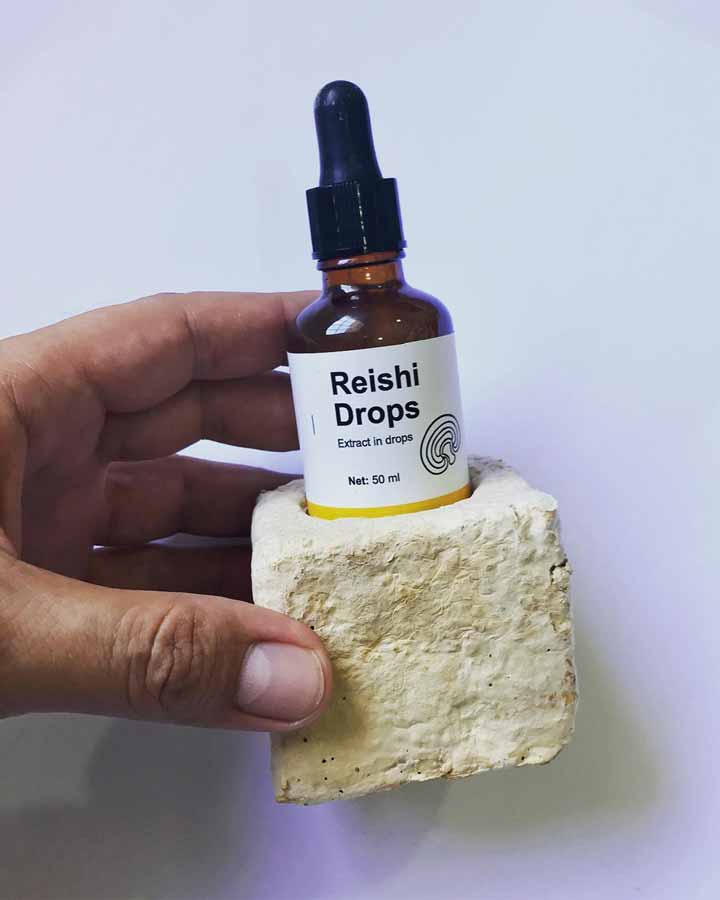
“I believe there is another way to produce and consume, and that’s why mushrooms are a great alternative to change the world of single-use plastic.” Testifies César Silva, founder of BioFabrik.
In 2022, Biofabrik produced over 1,200 pieces of packaging (boxes, wedges, lids) made from mushroom mycelium.
To discover Biofabrik, visit their Instagram Page.
